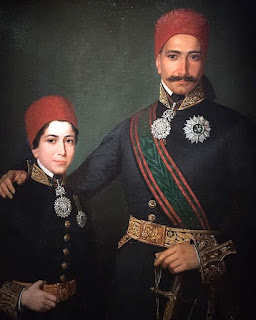[Excerpt from the book ‘The Greek community in South Africa’]
John
Papacostas was born in Filiates of Epirus in 1868. In 1894, he immigrated to Australia
but the following year he left for East Africa where he
remained until 1896. Following the outbreak of the Anglo-Boer war in South
Africa, he went down to the Transvaal and volunteered to fight against the
British Army. In Stellenbosch, where he later settled in, he was called
"the hero of the River Modder". In the Battle of the Modder, John
Costas as was later was known in South Africa, was captured by the British and
taken as a prisoner of war to a detention camp in Colombo in Ceylon (pr. Sri
Lanka). In 1911, he returned to Greece and fought for the liberation of Epirus.

































